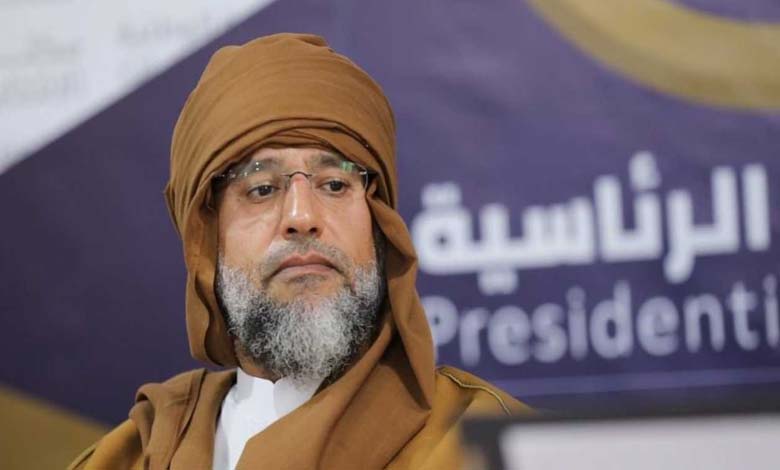Failure of Successive Governments Brings Gaddafi Supporters Back to the Political Forefront
Dbeibah warns loyalists of the former regime that they will not govern the country, adding that some seek to rule through weapons, while others use religion as a pretext to gain power.

The results of Libya’s municipal elections, held in 58 municipalities on November 16, revealed that the conflict among political entities is far from over, particularly with the victory of lists aligned with Saif al-Islam Gaddafi, the son of the late Libyan leader Muammar Gaddafi.
-
Militia Power: The Kidnapping of an Intelligence Officer Denies Europe Access to Libyan Gas
-
Libya.. The Constitutional Court Ignites a New Crisis between the Presidential Council and Parliament
The progress of lists such as Imar in Misrata, Al-Mizan in Bir Al-Ashhab, and Sawad Al-Watan in Wadi Ataba, among others, has revived the political base loyal to Gaddafi. This resurgence has sparked strong criticism from the opposition across Libya, which views these supporters as a divisive force in the country’s already fragile political landscape.
Saif al-Islam’s supporters continue to keep him relevant in the current political scene through statements attributed to him on social media. Following the announcement of the municipal election results, a post claimed a “sweeping victory,” with Saif allegedly stating: “With God’s help, we have achieved a resounding triumph in the elections. To those attempting to erase this truth, know that you will fail, even if they unite in support of one another.”
-
Libyan City Rises in Support of One of Its Leaders by Blocking Roads and Halting Oil
-
Will Libya’s Muslim Brotherhood Succeed in Infiltrating Municipal Councils? A Libyan Affairs Researcher Answers
Observers suggest that these results are merely a reaction to the frustration caused by the failure of successive governments to establish a functioning state through national elections. These elections would end the current chaos and alleviate the despair felt by Libyans amidst the rivalry between the country’s east and west. In Tripoli, a government with an expired mandate operates, while in the east, a parliament-approved government is in place.
Saif al-Islam’s potential participation in the presidential elections, initially scheduled for 2021, faces numerous local and international hurdles. His comeback poses a clear challenge to the outgoing Prime Minister of the Government of National Unity, Abdelhamid Dbeibah, while also renewing Western and U.S. fears of failed policies in reshaping Libya to align with their interests.
-
Tension rises in Western Libya after assassination of one of the biggest human traffickers
-
A New Crisis in Libya Impedes Negotiations for Forming a Unified Government
In his closing speech at the General Forum of Libyan Youth, Dbeibah openly criticized supporters of the former regime, stating, “They will not govern us.” He added, “Some seek to rule through weapons, others use religion as a pretext to gain power. There are also those calling for a return to the old regime, whether it be the monarchy or Gaddafi’s rule.”
The International Criminal Court continues to demand that Libyan authorities surrender Saif al-Islam for violations and war crimes committed during the February 17 Revolution, which toppled his father’s regime in 2011.
-
Libya Demands Tunisia Extradite Two Individuals Involved in the Assassination of Mliqta
-
Turkey expands its influence in Libya through military cooperation
The United Nations Support Mission in Libya reiterates its commitment to supporting the electoral process and ensuring an outcome that reflects the people’s will. It views municipal elections as a significant step towards strengthening democracy and legitimizing Libyan institutions.
Disagreement persists over the eligibility criteria for presidential candidates in Libya, particularly regarding electoral laws. Debates between the two parliamentary chambers focus on the candidacy of dual nationals, serving military personnel, and individuals with criminal convictions.












